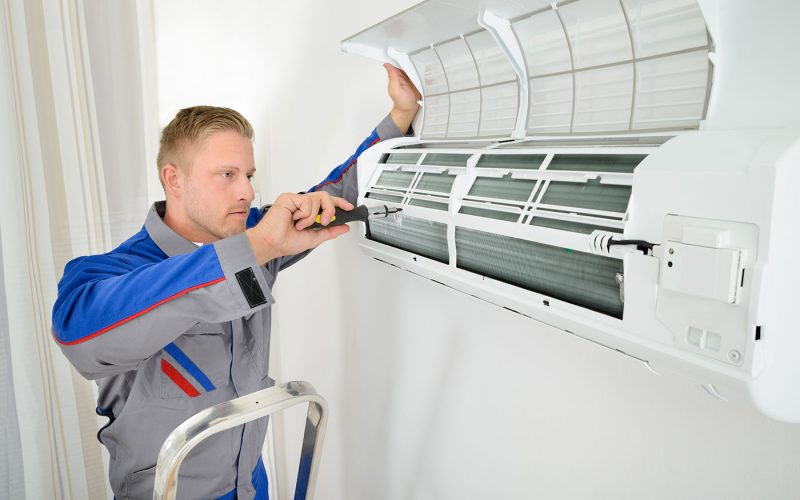An good night's sleep is essential for total health and stability, yet a lot of people struggle to achieve it. A often neglected factor that can greatly impact sleep quality is the setting in which we relax, particularly the heating, ventilation, and air conditioning (HVAC) systems in our homes. Knowing how HVAC systems work and the ways they contribute to a comfortable sleeping environment can help you enhance your sleep quality and daily performance.
In this article, we will discuss the various aspects of HVAC systems and their direct influence on sleep. From ensuring optimal temperature and humidity levels to ensuring clean indoor air quality, the role of HVAC is crucial not just for comfort but for health as well. We will provide tips into frequent HVAC issues, maintenance tips, and innovative solutions that can help form a sleep sanctuary designed to your needs. By the end, you will have the knowledge needed to make informed decisions about your HVAC system, maximizing your sleep quality for a better, more refreshing experience each night.
Comprehending HVAC
HVAC stands for Heat, Ventilation, and Air Conditioning, which are the 3 essential components that operate collectively to ensure a comfortable environment in domestic and commercial spaces. Heaters are responsible for providing heat during colder months, while cooling units cool the air when the heat increases. Air circulation ensures that fresh air circulates across the space, eliminating contaminants and ensuring good air quality indoors. Understanding how these systems operate is crucial for making informed decisions about upkeeping and improving home comfort.
The main function of an HVAC system revolves around its various components, including the heater, air conditioner, thermal pump, and ductwork. The furnace or heat pump generates heat that is delivered through ventilation systems or heaters, while the air conditioner lowers the temperature of and dehumidifies the air. Efficient airflow is secured through carefully arranged vents and fans, ensuring that every corner of a home is provided with the necessary conditioning. Awareness of how these parts interact helps in improving their performance and efficiency in energy use.
Common HVAC problems can arise from lack of maintenance, obsolete technology, or incorrect sizing of the system for the space. These issues can appear in unpredictable temperatures, increased energy bills, or a broken system. Regular maintenance, such as filter changes and periodic tune-ups, can prevent many of these problems and increase the duration of the system. By grasping HVAC systems and their frequent problems, property owners can make more informed choices in repairs or replacements, providing for a comfortable living environment all year long.
HVAC Care and Effectiveness
Consistent HVAC maintenance is crucial for ensuring the system functions effectively and optimally. Filtered filtration systems, for example, permit better airflow, which allows the system to achieve a desired heat level with less power consumption. Ignoring maintenance can lead to increased energy costs and a drop in efficiency, as dirt and debris build up within the system. Scheduling routine inspections not only helps catch potential issues early but also extends the lifespan of the HVAC equipment.
Another important aspect of HVAC efficiency is the fine-tuning of thermostat settings. It's vital to find a balance that maintains comfort while also minimizing energy use. For instance, setting the thermostat a few degrees higher in the summer and a bit lower in the winter can lead to considerable savings over time. Many modern systems offer smart thermostats that change automatically, guaranteeing peak performance based on your schedule and preferences.

Finally, maintaining the area around the HVAC unit unobstructed and free from obstacles aids in effective operation. This allows for enhanced airflow and prevents overheating or stress on the system. Frequently checking for gaps in the ducts and verifying proper insulation can additionally enhance energy efficiency. By implementing these easy steps, homeowners can ensure their HVAC systems run smoothly while contributing to reduced energy expenses and enhanced comfort in their home spaces.
HVAC's Impact on Indoor Air Quality
The standard of indoor air is vital for upholding a healthy living environment, and HVAC systems play a major role in this regard. By effectively controlling heat and moisture, HVAC systems assist to reduce the growth of fungi, contaminants, and other hazards that can impact air quality. Additionally, air conditioner installation supplied by these systems guarantees that clean outdoor air circulates inside, diminishing the level of interior impurities and providing a more pleasant space.
To boost interior air purity, selecting the correct air filters for your HVAC system is important. High-efficiency particulate air (HEPA) filters can catch a considerable amount of airborne particles, such as dust, flower dust, and pet allergens. Regularly changing these filters, as part of HVAC maintenance, helps maintain optimal performance and guarantees that the air circulating in your home is clean and healthy. Furthermore, some advanced HVAC systems come equipped with advanced filtration methods that can additionally improve air standards by clearing fumes and dangerous particles.
Moisture control is another key function of HVAC systems that immediately impacts indoor air quality. Suitable humidity levels help stop the development of pathogens and viruses, which prosper in too moist environments. Setting up AC company or ensuring your HVAC system has humidity management features can significantly boost your home's air purity, making the residential space not only more enjoyable but also healthier. Keeping humidity in check contributes to better respiratory health and lessens sensitivity symptoms, leading to better overall well-being for residents.
